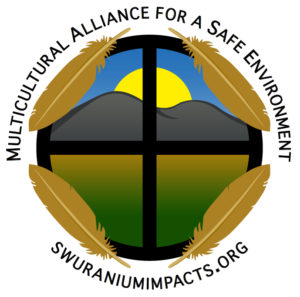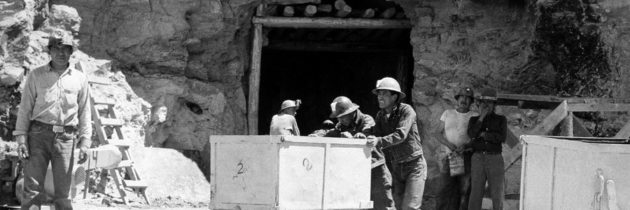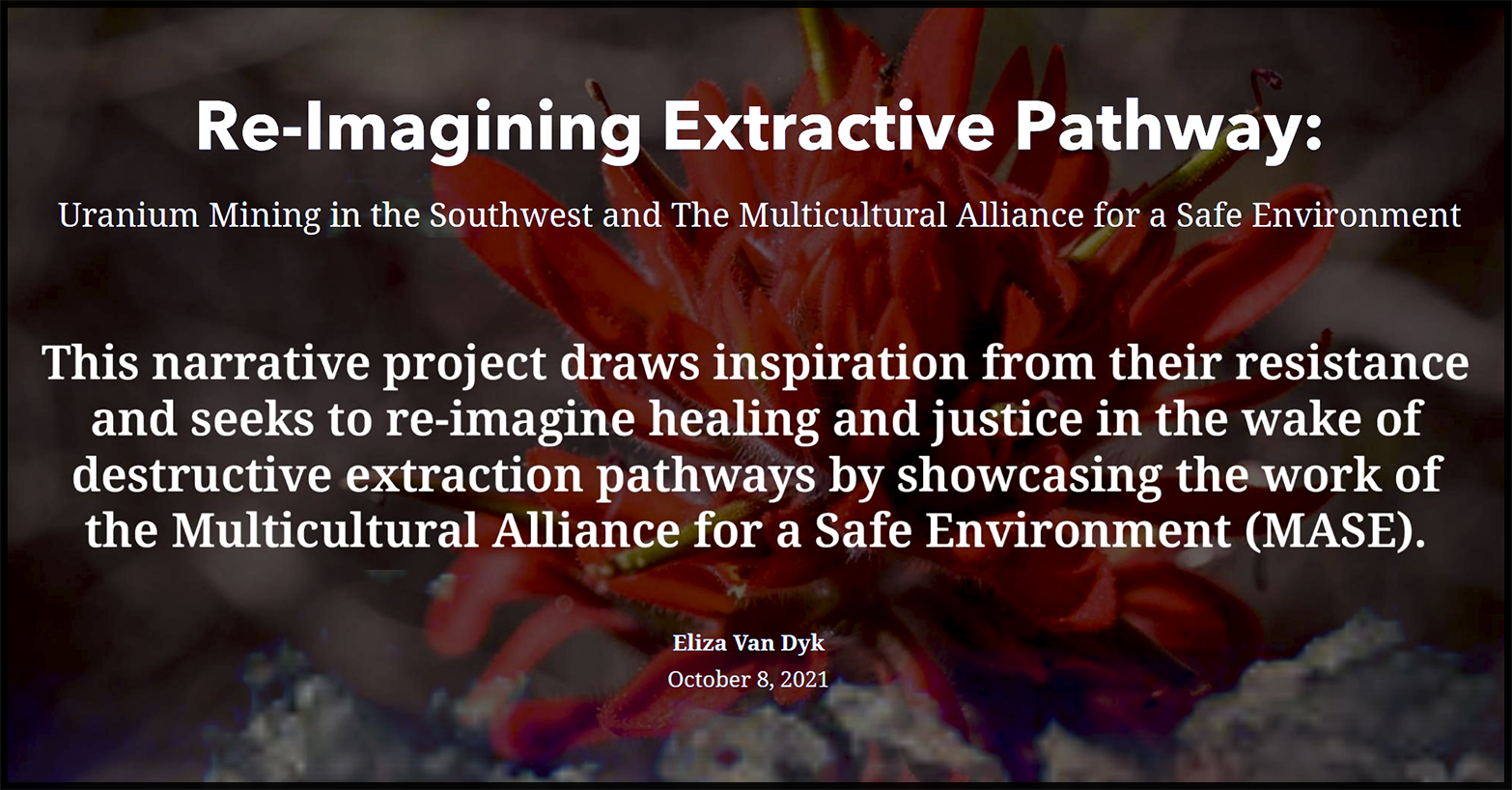New legislation offers hope – and urgency – for uranium mining survivors
For Immediate Release
September 22, 2021
Contact:
Susan Gordon, Multicultural Alliance for a Safe Environment www.swuraniumimpacts.org 505.577.8438, sgordon@swuraniumimpacts.org
Linda Evers, Post 71 Uranium Workers Committee 505.287.2304, leversredfence123@gmail.com
Larry King, Eastern Navajo Against Uranium Mining 505.979.411, l_king2013@yahoo.com
New legislation offers hope – and urgency – for uranium mining survivors
September 22, 2021: Today, Sen. Crapo (R-ID) and Sen. Lujan (D-NM) and Rep. Leger Fernández (NM-03) introduced new legislation to extend and expand the 1990 Radiation Exposure Compensation Act (RECA). Joined by bipartisan co-sponsors, this bill strengthens the existing RECA program which provides compensation to uranium mill and mining workers, atomic veterans, (military personnel who were exposed to nuclear tests to study their effects), and “downwinders” of nuclear tests in some affected states. Without Congressional action, RECA will expire in July 2022.
“As a former underground and surface mine worker, I worry about my health daily. It is past time to show all uranium workers that their sacrifices for their country have not been forgotten. The RECA Amendments will provide compensation for workers like me that contributed to the Cold War effort with my health and life,” said Larry King, Church Rock, Navajo Nation.
The expansion of coverage under the new bill will include the post 71 uranium workers who have been excluded by the original bill.
“The government and uranium industry made millions in profits while knowingly killing workers, and this injustice has gone on for over 20 years now. When can the dying workers expect the government to own their part of the devastation of lives they have caused and compensate ALL the uranium affected people?” stated Linda Evers, a former uranium worker from Grants, NM.
Other updates to the bill would include expanding coverage to downwinders in Idaho, Montana, Colorado, Guam, New Mexico, and additional counties in Utah, Nevada, and Arizona; adding new compensable diseases; and including medical benefits for other affected groups.
“The extension and expansion of compensation in the RECA amendments will help many New Mexicans that have been harmed by the uranium industry,” says Susan Gordon, coordinator for the Multicultural Alliance for a Safe Environment. “From the Laguna and Acoma Pueblos west to the Navajo Nation, our communities have been left with radioactive contamination, polluted waters, and deadly health impacts. RECA is a small step forward to address the environmental injustice from the legacy of uranium mining.”
Under RECA, eligible participants go through a claim process with the Department of Justice, to review their history of exposure. Those that are found eligible can receive between $50,000 and $150,000. The new bill would raise that compensation to $150,000 for all claimants.
The bipartisan bill will move forward through the Judiciary Committee (which held a hearing on the program earlier this year. Advocates are cautiously optimistic about their chances.
“Congress is slow to act even in the face of great need. New Mexico has been greatly impacted by the nuclear weapons programs. With the deadline looming, perhaps the politicials will step up and do what is right,” says Susan Gordon. “There is growing awareness that this is a national issue and one that everyone needs to support.”
To be put in touch with experts and advocates for further information on the proposed legislation, introductions to affected community members, or background on the history and effects of uranium mining please reach out to Susan Gordon, sgordon@swuraniumimpacts.org
###






